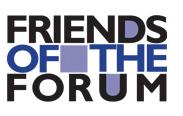| 2014 |
Głogów
Bolesław Krzywousty High School No 1


| 2014 |
Głogów – a former German town in western Poland that changed owners very often during its turbulent history. In the 13th century the Silesian Piasts held sway over it, and it was then when first Jews appeared here. During the rule of the dukes of Głogów it was a golden age for Jews – they had their own institution and privileges, their quarter was adjacent to the ducal castle, with streets like Nędzna, Odrzańska, Pawła and Żydowska. An eclipse started during the reign of the last Piast duke – Jan II the Mad. Later, in 15th century, numerous pogroms occurred, and when Habsburgs took over Głogów, it was even worse. Massive deportations and humiliating decrees started (like ordering Jews to wear yellow patches on their attire). Later Głogów went under the Prussian rule, and it got better.
A synagogue modelled on the Munich one was built. There was also a Jewish primary school and numerous charities. Hitler’s coming to power in Germany heralded the beginning of an end. Shops and factories were forcibly taken from Jews, they were fired en masse. Who could run – ran. In 1938 during the Kristallnacht the synagogue burned down. Later Głogów Jews were taken to the Izbica camp and murdered there. In 1945 Głogów was annexed to Poland and settlers from the east started coming, only to find a sea of rubble. The Old Town was rebuilt only in 1990s, but the rebuilding process is far from over, there’s still much to do – like the St.Nicholas Church or the Old Theatre. Ruins are witness to the town’s uneasy past and a memento of days bygone.
Most of people in Głogów are relative newcomers to the town, they did not have deep roots in the town and do not remember the times before the war. The subject of the School of Dialogue is for the Głogów students an absolute novelty. “I had no idea about Jewish culture in Głogów, and I would not know anything were it not for the workshops” said one of the students, and another added: “I must admit that I would not explore the subject on my own, if not for the workshops”. Four intensive meetings with Forum for Dialogue educators, Karolina Kochanowska and Małgorzata Nowicka, spark off a flurry of activities, not to mention lots of knowledge and skills. “The form of workshops itself was very interesting, helping us to develop our tolerance, missing in some cases” – said one of the participants.
The School of Dialogue workshops resulted in a walking tour following the Jewish sites of their town, prepared by the students for students of another school.
The students became guides, leading their colleagues to the town hall and the market halls, to Andreas Gryphius Theatre, to the ruin of St. Nicolas Church. They showed the monument commemorating the synagogue burned down during the Kristallnacht and places where Jewish butchers used to be. The tour ended with a quiz with food prizes going to winners. The students also prepared a brochure describing the tour, the synagogue, and the cemeteries, explaining also how Jews came to Głogów and why we cannot meet them today. They also recorded an audioguide to be used by tourists interested in the town’s past. Some students count that the project is not the end of their involvement: “I hope to broaden the knowledge I acquired. Perhaps I would be able to help someone looking for information about their Jewish ancestors”, said Ania, a student of Głogów high school.

School:
Bolesław Krzywousty High School No 1
Students:
1st year students
Teacher:
Ewa Czaińska
Expert:
Antoni Bok
Educators:
Karolina Kochanowska, Małgorzata Nowicka
In appreciation to the Conference on Jewish Material Claims Against Germany (Claims Conference) for supporting this educational program. Through recovering the assets of the victims of the Holocaust, the Claims Conference enables organizations around the world to provide education about the Shoah and to preserve the memory of those who perished.

In appreciation to Friends of the Forum for supporting the School of Dialogue educational program.
